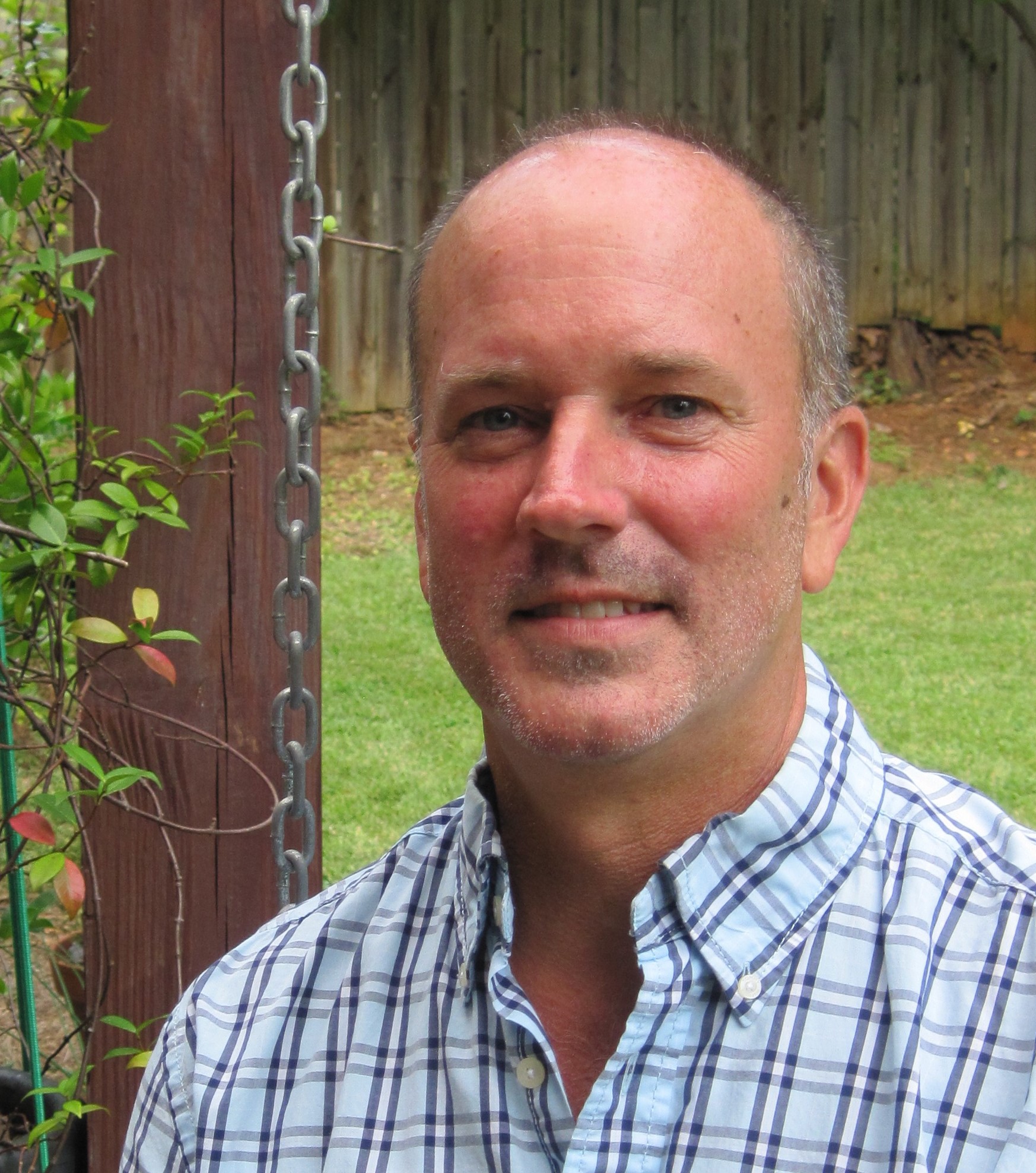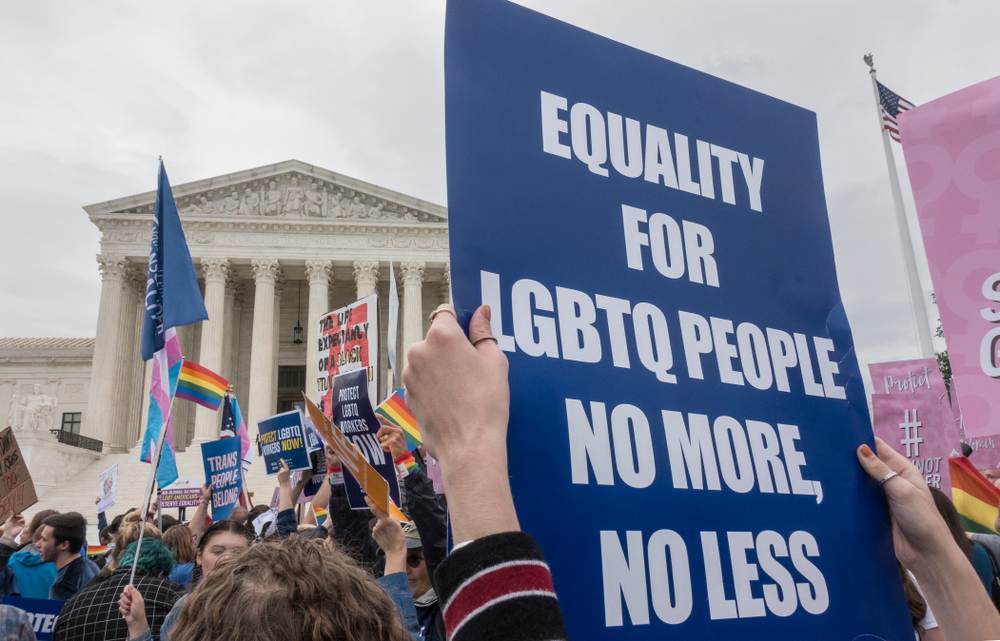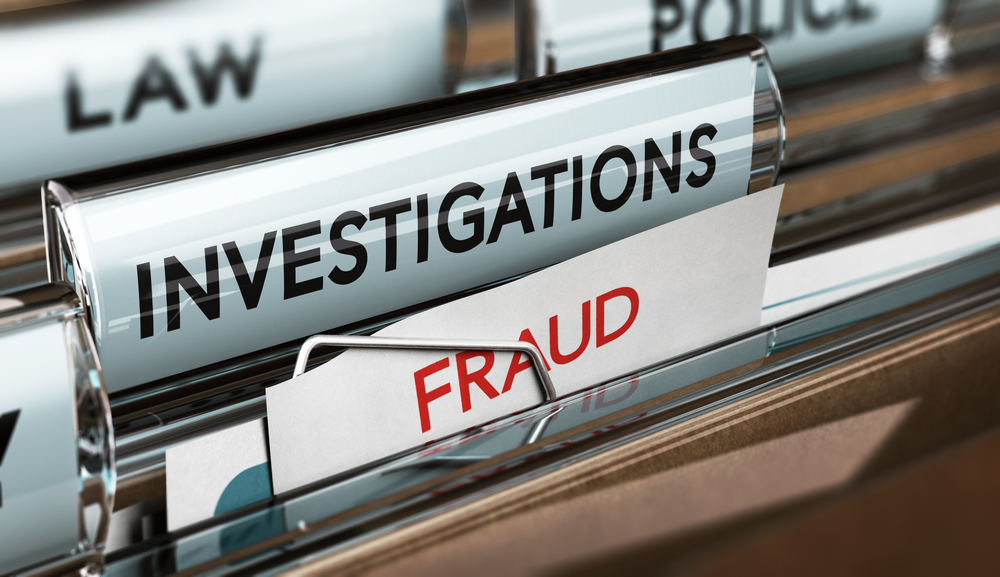Gerald Bostock won a historic victory at the U.S. Supreme Court for gay and transgender people across the United States.

After a champagne celebration with friends, Bostock says he’s girding for more battles that still lie ahead, both personally and for the larger LGBTQ community.
Bostock was one of the plaintiffs in the Supreme Court case in which justices ruled 6-3 that it is sex discrimination and against federal law to fire employees because they are gay or transgender.
“For me personally, obviously, my priority will be consulting with my legal team at Buckley Beall here in Atlanta and resuming the action against Clayton County, my former employer,” Bostock told the Legal Examiner the day after the Supreme Court ruling.
Bostock still must prove discrimination
So, on a personal level, now that the justices have declared discrimination against gay and transgender employees illegal, Bostock still must prove his employment discrimination case. And experts in employment law say these kinds of cases are notoriously difficult to prove.
In other words, Bostock and other gay and transgender employees have won the right to fight a legal battle where they face tough odds.
RELATED: Fourth Amendment case raises larger questions
RELATED: Black, deaf Americans face extra obstacles when dealing with police
“But in the bigger picture,’’ Bostock said, “I think the victory that we all share, I think it comes in a really important time in that the message that the justices gave was a very clear message about equality.
“I’m hopeful that through all these dark days we’ve been having that this victory will shed some sunshine on those very dark days,’’ he said. ‘’What’s happening right now certainly underscores the fact that there’s so much work that does need to be done and accomplished.”
Bostock says he is joining the general civil rights battle that is playing out across the country over racism.
LGBTQ discrimination still may be legal
At the same time, the LGBTQ community still faces more legal fights for equality.
While LGBTQ individuals can now marry and their employers are not legally allowed to discriminate against them, the law still permits discrimination against them in other places.
For example, federal law does not prevent discrimination against LGBTQ people at public accommodations, like hotels and restaurants.
Bostock was fired in 2013 from his job working as a child welfare services coordinator for Clayton County, Georgia, after his boss found out he was playing in a gay softball league.
Bostock sued, and the county filed a motion to dismiss the lawsuit on the grounds that discrimination against gay employees was not illegal. That motion was granted.
The appeals worked their way up to the Supreme Court. Bostock and others with similar lawsuits won.
Bostock now works as a hospital mental health counselor in Atlanta.
“Though I’m no longer making a difference in the lives of children, I’m making a difference in the lives of my adult patients,” he said.
In the meantime, Bostock’s underlying lawsuit was never litigated. And now the Supreme Court victory just sends it back to the original trial court. If the parties can’t reach a settlement, the case may go to trial.
LGBTQ Employment discrimination tough to prove
The law at the center of the Supreme Court decision question is Title VII of the Civil Rights Act of 1964, which prohibits employment discrimination based on race, color, religion, sex and national origin.

“Title VII employment discrimination cases are difficult to win,” said Loyola Law Professor Kimberly West-Faulcon, who teaches employment discrimination and constitutional law.
In fact, a legal analytics firm found in 2017 that only 1% of plaintiffs who file federal job discrimination, harassment and retaliation claims actually win their cases at trial.
West-Faulcon said the Supreme Court’s Bostock ruling was nonetheless “momentous.”
The moral victory may outweigh the legal challenges that remain in these cases, according to Gregory R. Nevins, senior counsel and employment fairness project director at the southern regional office of Lambda Legal.
The decision established that it’s illegal for employers to discriminate against gay and transgender workers. More than being able to file lawsuits, Nevins said, “hopefully, they won’t be terminated in the first place.”
Legal gaps remain
There are a couple of exceptions to Title VII, too. It applies only to companies with at least 15 employees.
So, unless a state has adopted additional protections, companies with fewer than 15 employees are still legally permitted to discriminate against the LGBTQ community.
The law has another exception for religious employers. While the exception has been limited in the past to apply to places like churches, West-Faulcon said, it’s not clear whether the courts will interpret it differently moving forward.
Bostock’s attorney, Tom Mew, noted that while some religious conservatives argued in favor of allowing discrimination, several faith leaders filed briefs with the court in support of Bostock and the other plaintiffs.
“It’s simply too early to tell how those issues will resolve themselves in any given case,” Mew said. Given that and the employee threshold, Mew encouraged state legislatures to pass laws to “fill any gaps that are left.”
Additionally, Bostock called on Congress to pass the Equality Act, which would protect LGBTQ individuals from discrimination in other areas, including housing, credit, education, public accommodations, federally funded programs and jury service.
Case may outlaw some other forms of discrimination
Some legal experts think the Bostock case may serve to extend protections in at least some of those areas because it interpreted a bar on discrimination because of sex as applying to discrimination based on sexual orientation or identified sex.
Several other laws bar discrimination on the basis of sex, so it’s possible the courts will interpret those statutes the same way, extending those protections to gay and transgender individuals.
One of those laws is the Fair Housing Act. In theory, at least, the Bostock decision also makes it illegal to discriminate against gay and transgender individuals in housing. Same goes for Title IX of the Civil Rights Act, which applies to educational institutions.
Justice Samuel Alito, who dissented from the Bostock ruling, attached an appendix listing dozens of federal laws that bar sex discrimination. Will the Bostock case apply to those laws, too? Perhaps.
West-Faulcon said a lot will depend on how future cases are handled. A future Supreme Court will have different justices who may rule differently, she noted. Even the same justices may see legal distinctions among the various statutes that mean they don’t apply to LGBTQ individuals.
For example, some laws ban discrimination because of sex, while others ban it on the basis of sex. Will the courts see a difference there? You just never really know until you get a ruling.
One significant federal anti-discrimination law that does not include sex as a protected category is Title II of the Civil Rights Act, which makes it illegal to discriminate on the basis of race in public accommodations. This would include places like hotels and restaurants.
“I hope we don’t live in a world where there’s some restaurant that says, ‘You can’t come here to eat dinner because you’re gay,’“ West-Faulcon said. But under federal law, at least, that may still be permitted.
At the same time, the current administration has moved to allow discrimination in other areas. For example, it recently adopted a rule to allow adoption agencies to claim their religion prevents them from allowing LGBT people to adopt.
The administration has also barred transgender individuals from serving in the military.
Some states have extra protections
Many states, on the other hand, have their own protections that supplement federal law. You can find information about those laws at the Movement Advancement Project.
Specific state laws tracked by the project include protections for adopting and nondiscrimination in family services, credit, public accommodations and housing.
The project gives 15 states high marks for overall protections for gay and transgender citizens. Another 13 states are given negative overall ratings. The rest fall somewhere in between.
The highly ranked states include:
- California
- Nevada
- Oregon
- Washington
- Colorado
- New York
- Maine
- New Jersey
- Vermont
The poorly ranked states include:
- Idaho
- Texas
- North Dakota
- South Dakota
- Georgia
- Louisiana
- Alabama
- Mississippi
- Oklahoma
These issues are being worked out at the same time the country is very much involved in a struggle to address systemic racism.
Overall civil rights may benefit
“We are very much aware that this decision comes at a time when we have so much work in this country to dismantle these legal and cultural systems of racism that should have been dismantled long ago, and yet still persist,” said Mew, Bostock’s attorney.
”So while we’re certainly heartened by this decision, we recognize the war for civil rights and the fight for people to be recognized and have the full measure of equality under the law is continuing on so many important fronts in this march towards justice. We certainly recognize that while this is an important and landmark decision under Title VII, this nation has a lot of work to do before any promise of equality is actually delivered upon.”
Bostock said he believes the decision in his case will provide fuel to American civil rights.
“Just like the rainbow symbol after a bad storm that’s always in the sky as a reminder and as a promise that things are going to be okay,” he said, “I have to believe and my hope is that across this country we all celebrate this historic moment because I think it lays the groundwork that we will continue to move forward toward equality for all.”
Contact Elaine Silvestrini at [email protected]. Follow her on Twitter at @WriterElaineS.












